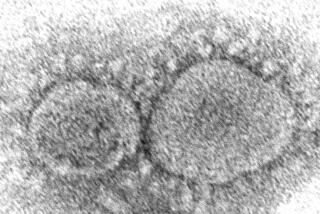Intelligence Committees Agree on Covert Action Restrictions
- Share via
WASHINGTON — Four and a half years after the Iran-Contra scandal burst on the public, the House and Senate Intelligence committees announced agreement Friday on new restrictions on covert intelligence operations.
The legislation, which would write into law a series of restrictions that have been issued in presidential orders over the last several years, will come before the House and Senate for final approval next week.
Lawmakers attached the changes to a bill authorizing intelligence activities for the current fiscal year, which is already nearly three-fourths over. The measure is late because President Bush vetoed an earlier version last year in a dispute over the new restrictions.
But senior Republicans on the two committees said Friday that they believe the President will accept the new version.
Among its major provisions, the bill would close a loophole exposed by Iran-Contra, in which Oliver L. North and the National Security Council staff carried out a covert operation by asserting that it was exempt from restrictions that applied to the CIA.
The new bill would apply controls to any government agency involved in a covert action. Those controls include the necessity of a signed presidential “finding” in advance of the operation, that the action be needed to support identifiable U.S. foreign policy goals and that involvement of any third parties be spelled out.
The bill defines in law for the first time what constitutes a covert action. It was vetoed last year largely because Congress sought to include “requests” by the United States to third parties or countries to carry out secret operations on its behalf.
Bush viewed that as impairing U.S. officials who might want to informally sound out foreign diplomats on possible covert operations.
In dealing with the veto, the Senate sought to refine the provision to include activities “conducted by, or on behalf of and under the control of an element of the U.S. government.”
But the final product is more ambiguous, dropping all reference to third parties and instead defining covert actions as acts “to influence political, economic or military conditions abroad so that the role of the U.S. government is not intended to be apparent or acknowledged publicly.”
More to Read
Get the L.A. Times Politics newsletter
Deeply reported insights into legislation, politics and policy from Sacramento, Washington and beyond. In your inbox twice per week.
You may occasionally receive promotional content from the Los Angeles Times.









